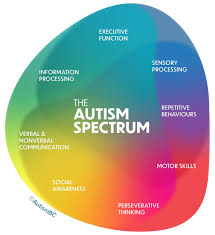
Indian Scientists Discover Promising Therapy Targeting Autism and Intellectual Disability
In a significant breakthrough, researchers at the Jawaharlal Nehru Centre for Advanced Scientific Research (JNCASR) have identified a potential therapeutic strategy for individuals suffering from Autism Spectrum Disorder (ASD) and Intellectual Disability (ID), offering hope for a future with greater independence and improved cognitive functioning.
Current treatments for ASD and related neurodevelopmental disorders primarily focus on managing symptoms rather than addressing the underlying biological mechanisms. However, the new study, led by Prof. Tapas K. Kundu and Dr. James Clement, brings a paradigm shift by targeting a fundamental molecular deficiency linked to autism.
The research, published recently in the journal Aging Cell, investigates the role of the Syngap1 gene, mutations of which are known to be associated with severe forms of autism in humans. Using a mouse model genetically engineered to mirror this mutation (Syngap1+/- mice), the team discovered that the acetylation of histones—proteins that help package DNA and regulate gene expression—is significantly reduced in the brain. This epigenetic impairment was traced to low activity of an enzyme called KAT3B or p300.
Kundu’s lab had previously identified a compound, TTK21, which activates this enzyme. In their latest study, the researchers conjugated TTK21 with a glucose-derived nanosphere, creating a compound known as CSP-TTK21. When administered to the Syngap1+/- mice, especially after the brain's developmental phase (akin to adolescence in humans), the treatment successfully induced histone acetylation in the brain.
Remarkably, the therapy led to restored neuronal function, improved learning and memory, and stimulated beneficial neuronal rearrangements. According to the scientists, this is the first time histone acetylation has been directly linked to autism, providing a strong scientific basis for developing targeted epigenetic treatments for ASD and ID.
“This study not only uncovers a critical biological mechanism behind autism but also presents a realistic and promising therapeutic avenue,” said the researchers. “It opens the door to interventions that could significantly improve quality of life and reduce dependency for individuals affected by these disorders.”
Funded by the Department of Science and Technology (DST), this research from JNCASR—a premier autonomous institute under DST—adds a hopeful chapter to the ongoing global search for effective therapies targeting the root causes of autism and intellectual disability.